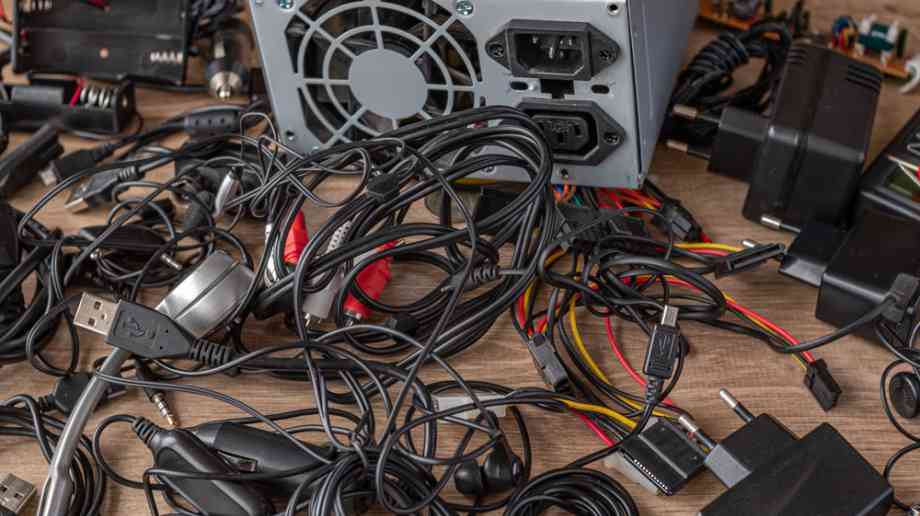
Building a movement for recycling by working with local authorities
Scott Butler, executive director, Material Focus talks discusses the Electrical Recycling Fund and how it can make recycling easier.
In the past year, over half a billion small electrical ‘FastTech’ items have been bought and 90 per cent of them thrown away in the same period. These figures are staggering with FastTech now the fastest-growing type of waste stream in the world. Is FastTech now starting to surpass Fast Fashion and Fast Food as a major cause for concern?
FastTech items, including vapes, earphones, chargers, cables and decorative lights, are too often seen as being disposable, not least because they are low cost averaging at £4 each. But these items are not trivial, they contain some of the most valuable materials on the planet, including copper and lithium.
In response to this pressing issue, we have launched a multi-channel communications campaign, Recycle Your Electricals which is encouraging UK households to recycle their unwanted and old electricals.
Our captivating fluffy, pink ambassador, HypnoCat, is hypnotising the nation into recycling their electricals. We also have a recycling locator, which has over 22,000 recycling and donation points across the UK, making it easier for households to find their nearest recycling point.
Electrical Recycling Fund
A key part of our campaign is to make recycling easier by investing in more recycling points. We have recently introduced the Electrical Recycling Fund with £2.5 million available, and £1.8 million already allocated to over 40 donation, recycling and repair projects across the UK. Our aim is to simplify the responsible disposal of electricals for 10 million UK residents by making it easier for consumers to recycle them. These projects use a variety of methods, from kerbside collections to on-street bring banks and additional drop-off points in schools and community centres. There will be over 400 new collection points, along with kerbside collections benefiting 5.5 million UK residents.
The projects and their impact
The projects span across the UK, from Brighton to Aberdeen. For example, Richmond Upon Thames and Wandsworth Councils are introducing a kerbside collection service and bring banks for half a million residents. Another example is ILM Highland, who are launching 7 Small Electrical Recycling banks with mobile phone chutes in rurally isolated locations across Highland. This is to expand on their incredibly successful initial roll out of 10 small Electrical Recycling banks, which has already attracted widespread interest. The projects are all still in their early stages, with five launched so far, we are looking forward to seeing the results of their work and seeing how these projects progress.
The impact of the Electrical Recycling Fund and the projects will be much more than how many electricals are recycled or how many new collection points there are. These initiatives are changing the way communities engage with and dispose of their small electrical items.
Councillor Ken Hawkins, Solihull Council’s cabinet member for environment and infrastructure said: “It’s great that our residents will soon be able to get rid of their small electrical goods in a responsible and environmentally friendly way. Recycling and reusing materials is key to creating a circular economy where we reduce the need for ‘new’ resources by reusing old ones. I am sure our residents will appreciate this new service from Veolia, supported by Material Focus.”
Charlotte Thorpe from Library of Things, highlights the impact of similar initiatives. “In London and Brighton, more than 16,000 residents have already prevented over 150 tonnes of electrical waste from ending up in landfill by renting instead of buying occasional use household items. Some of our users are already active zero-waste champions - organising repair parties and swap shops, and telling neighbours about services and campaigns to reduce waste. We want to support more of this – becoming a platform for local people to organise around reuse and repair.”
What makes a successful applicant?
Successful applicants have the following areas in common. They clearly explain what their project is about, how it will make a difference, and talk about how it will keep working even after the funding is over. They also set specific targets for the impacts they will have and for the number of households and people they want to involve. Being clear and open about the costs and how they’ll use the funding is a big part of why their application was successful.
What can you do?
If you have unwanted electricals, please take them to be recycled or donated. You can find your nearest donation, repair or recycling point near you by using the Recycle Your Electricals recycling locator which has over 22,000 locations in stores and household recycling centres across the UK.


